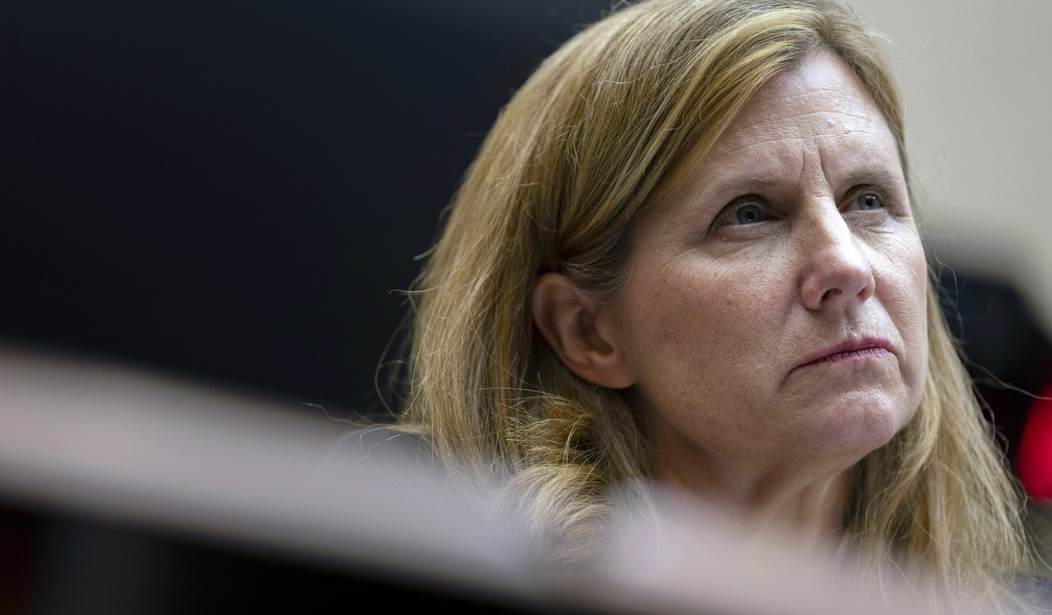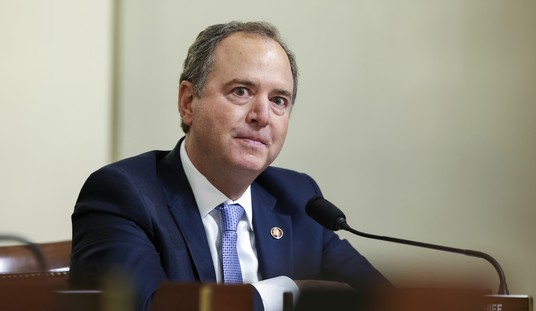On Saturday, President Magill of UPenn resigned under intense pressure from students, donors and even the state’s governor. Like everyone else on the right, I’m fed up with the clear double standard at elite schools when it comes to questions of free speech. Leftist students can say literally anything, including disrupting invited speakers. Administrators will usually offer some tepid reaction and no students are ever disciplined. On the other hand, anyone on the right who utters a microaggression is in danger of being canceled by the student body while the administration says nothing. It can often feel hopeless.
But I think it’s worth keeping in mind that there have been some wins on these issues, even at elite schools. For instance, when 5th Circuit Judge Stuart Kyle Duncan was heckled and shouted down at Stanford, the initial response was exactly what you would expect. DEI dean Tirien Steinbach gave a prepared speech essentially suggesting that whatever Duncan had to say wasn’t worth the pain it might cause to sensitive students.
Fortunately that wasn’t the end of the story. Stanford Law School dean Jenny Martinez did a much better job dealing with it. Despite a silent protest by students in her own classroom, she eventually released a lengthy letter apologizing to Judge Duncan and explaining why the students were wrong:
Some students have argued that the disruptive protest of the event was itself constitutionally protected speech. Of course, protests are in some instances protected by the First Amendment, but the First Amendment does not give protestors a “heckler’s veto.” As First Amendment scholar Dean Erwin Chemerinsky has written, “Freedom of speech does not protect a right to shout down others so they cannot be heard.”…
To the contrary, settled First Amendment law allows many governmental restrictions on heckling to preserve the countervailing interest in free speech. As the California Supreme Court stated in In re Kay, 464 P.2d 142, 149 (Cal. 1970), “the state retains a legitimate concern in ensuring that some individuals’ unruly assertion of their rights of free expression does not imperil other citizens’ rights of free association and discussion.”…
The “nature of a meeting” in an indoor university classroom, under settled First Amendment law, does not countenance the same sort of “prolonged, raucous, boisterous demonstrations” that might be acceptable at an outdoor rally, see In re Kay, 464 P.2d at 150. Rather, different “customs and usages” apply in a setting like a planned lecture in a reserved room on campus. In such a setting, limiting audience participation to signs, questions during a planned Q&A, and a non-disruptive level of audience reaction is appropriate to the nature of the forum. Stanford’s event disruption policy gives attendees a right to hold signs and to demonstrate disagreement in other ways as long as the methods used do not “prevent or disrupt the effective carrying out of a University function or approved activity, such as lectures, meetings, interviews, ceremonies. . . and public events.”…
The President of the University and I have apologized to Judge Duncan for a very simple reason – to acknowledge that his speech was disrupted in ways that undermined his ability to deliver the remarks he wanted to give to audience members who wanted to hear them, as a result of the failure to ensure that the university’s disruption policies were followed.
DEI dean Steinbach, the one who sided with student protesters, was put on leave and eventually resigned. This was a pretty high-profile example of the kind of battle we’re talking about and you’d have to say the defenders of free speech eventually won.
As David pointed out not long ago, there’s still room for criticism as one of the students who led that disruption at Stanford is now helping select the new law school dean (after dean Martinez was promoted). Granted that’s not a great outcome but the student in question is one of a dozen people selecting the next dean and it seems like a good thing to me that dean Martinez was promoted because it puts her in an even more powerful position to defend speech the next time around if the need arises.
Meanwhile, there are people on the left who will openly tell you that the focus on campus free speech is a mistake. I wrote about a couple of them last month. But these critics of “free speech absolutism” have been around for years. The critics of free speech are already taking Magill’s resignation as proof we need to embrace more limits on “hate speech.” This piece by a UPenn law professor was published yesterday.
Congress could have assembled two dozen university presidents and likely would have received the same answer from each of them.
This is because the value of free speech has been elevated to a near-sacred level on university campuses. As a result, universities have had to tolerate hate speech — even hate speech calling for violence against ethnic or religious minorities. With the dramatic rise in antisemitism, we are discovering that this is a mistake: Antisemitism — and other forms of hate — cannot be fought on university campuses without restricting poisonous speech that targets Jews and other minorities.
University presidents are resisting this conclusion. Rather than confront the conflict between the commitment to free speech and the commitment to eliminating the hostile environment facing Jewish students on campus, many simply affirm their commitment to both or buy time by setting up task forces to study the problem. Some have attempted to split the difference by saying they are institutionally committed to free speech but personally offended by antisemitism. Others have said the answer to hate speech is education and more speech.
Countering speech with more speech might just mean adding to the hateful rhetoric on campus and would not solve the problem. And university presidents can set up all the task forces, study groups and educational modules they like, but what kind of educational effort could possibly bring together warring groups that are busy calling for one another’s violent demise?
In short, these folks believe free speech doesn’t work and what we need instead is more institutional support to shut down hate speech. That’s the gist of the argument and the fact that Magill lost her job is being pointed to as proof that’s what people want.
You can argue, as David has, that things can’t possibly be worse than they are now. If we’re already at zero then there’s really nothing left to lose by pushing out one administrator. I think David is correct that Magill is a hypocrite (I called her a liar last week), but I would argue that we’re never really at zero in the battle for free speech. As the incident earlier this year at Stanford demonstrates, free speech still wins some of these battles, even on elite campuses. And Stanford isn’t the only place where this is true. The University of Chicago has also been leader in defense of free speech.
Of course, the ideas of different members of the University community will often and quite naturally conflict. But it is not the proper role of the University to attempt to shield individuals from ideas and opinions they find unwelcome, disagreeable, or even deeply offensive. Although the University greatly values civility, and although all members of the University community share in the responsibility for maintaining a climate of mutual respect, concerns about civility and mutual respect can never be used as a justification for closing off discussion of ideas, however offensive or disagreeable those ideas may be to some members of our community…
In a word, the University’s fundamental commitment is to the principle that debate or deliberation may not be suppressed because the ideas put forth are thought by some or even by most members of the University community to be offensive, unwise, immoral, or wrong-headed. It is for the individual members of the University community, not for the University as an institution, to make those judgments for themselves, and to act on those judgments not by seeking to suppress speech, but by openly and vigorously contesting the ideas that they oppose. Indeed, fostering the ability of members of the University community to engage in such debate and deliberation in an effective and responsible manner is an essential part of the University’s educational mission.
It may sometimes feel like this is a hopeless fight against an army of well-paid DEI administrators but even if the battle was truly lost at UPenn it’s certainly not lost at other schools that could be influenced by the outcome at UPenn. I think FIRE is basically correct in warning that we still have more ground to lose here.
So as satisfying as it may be to see Liz Magill pushed out for her bloodless, smirky response to the obnoxious and hate-filled speech aimed at Israel and Jews in general on her campus, handing ammunition to free speech opponents could have consequences we won’t like down the line.







Join the conversation as a VIP Member